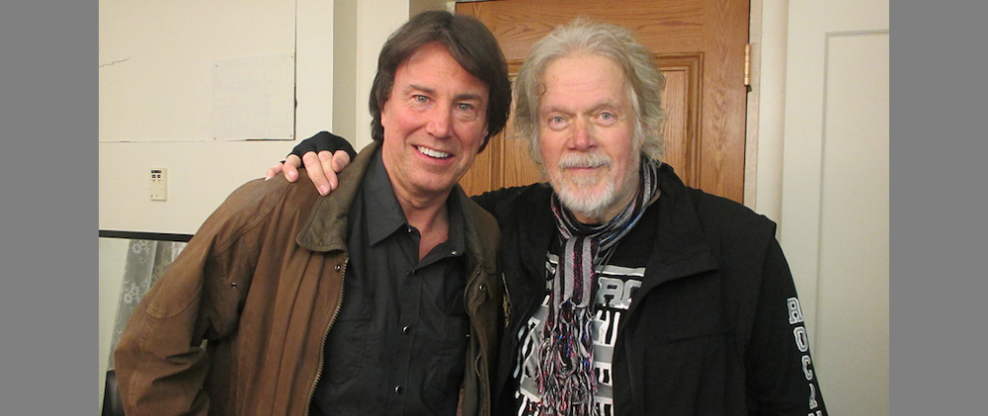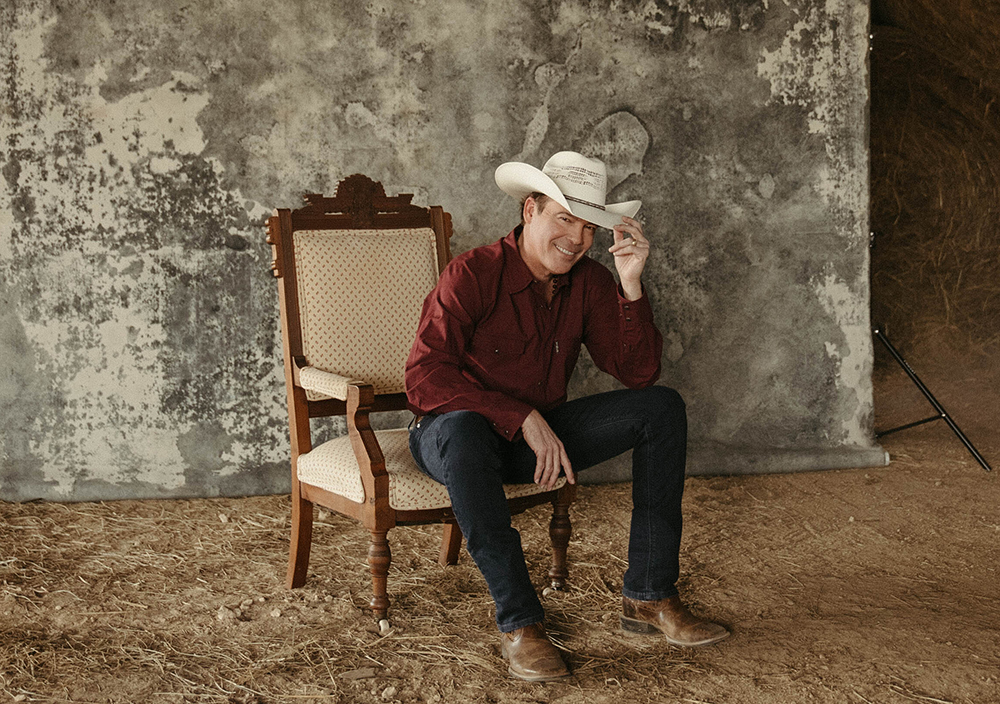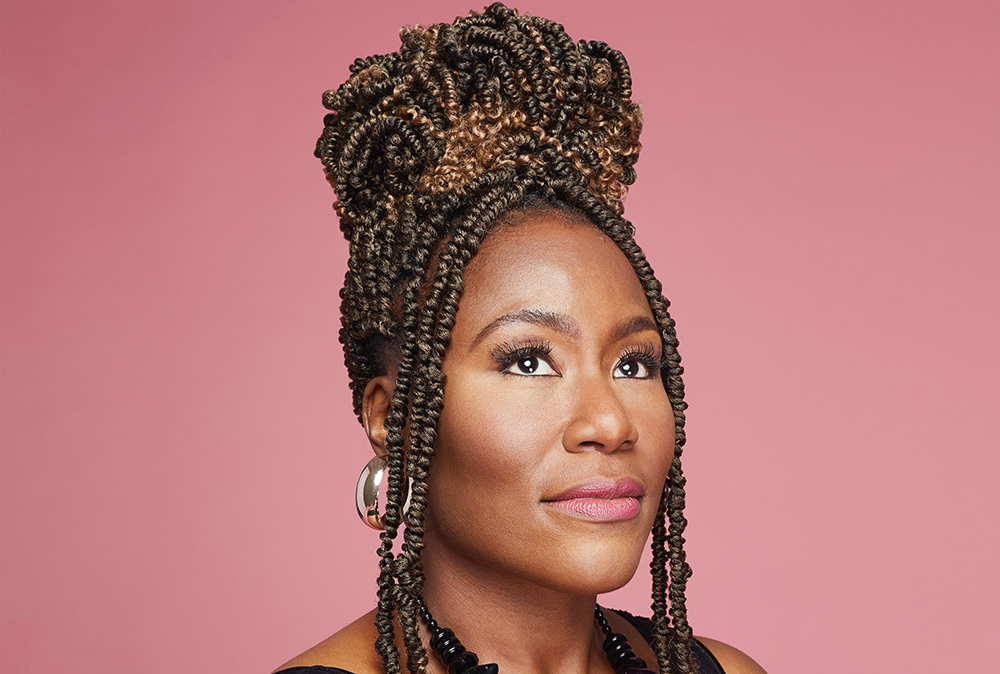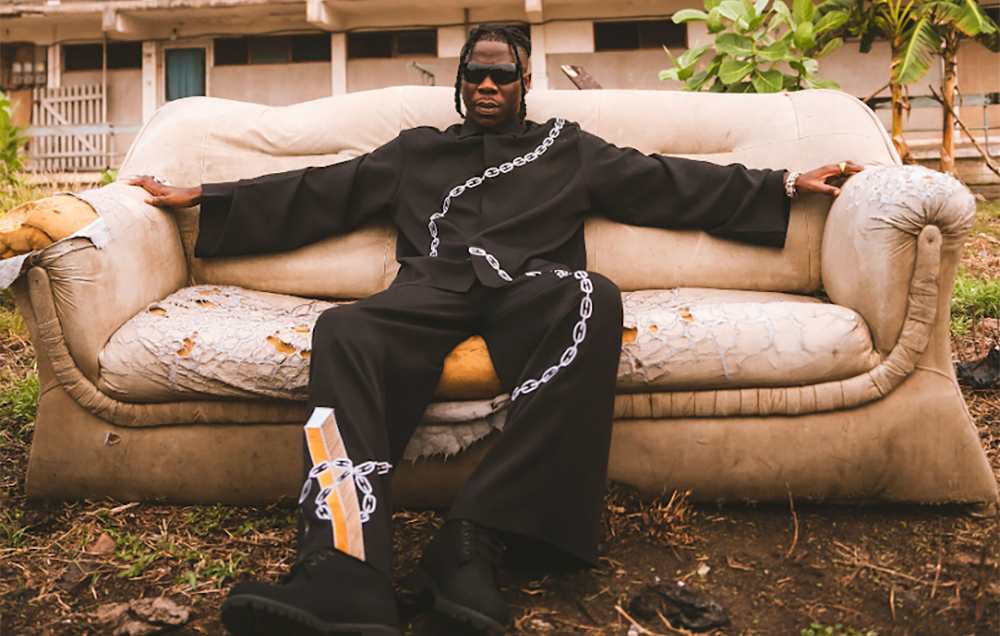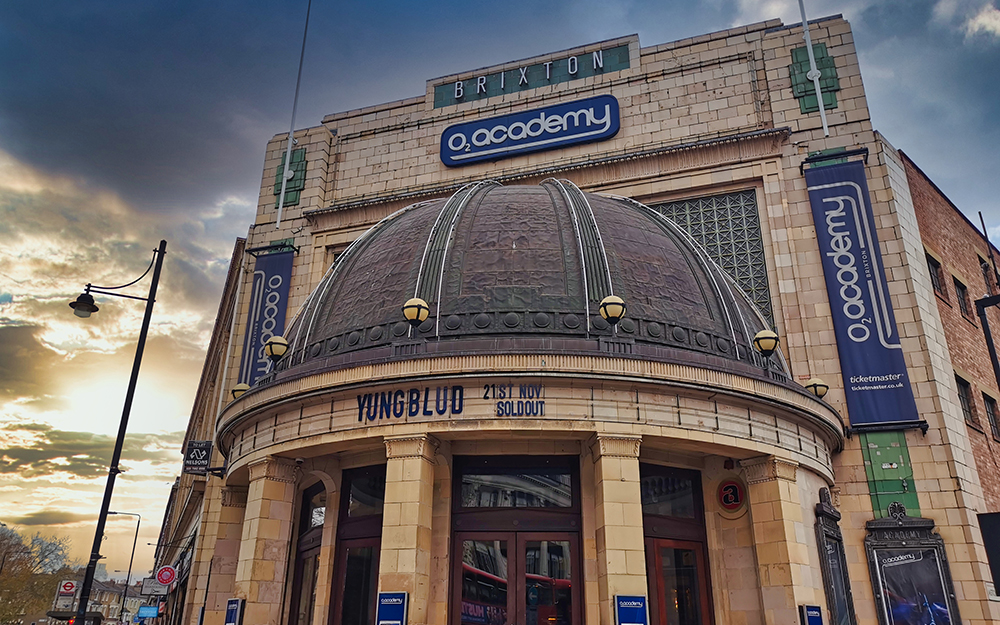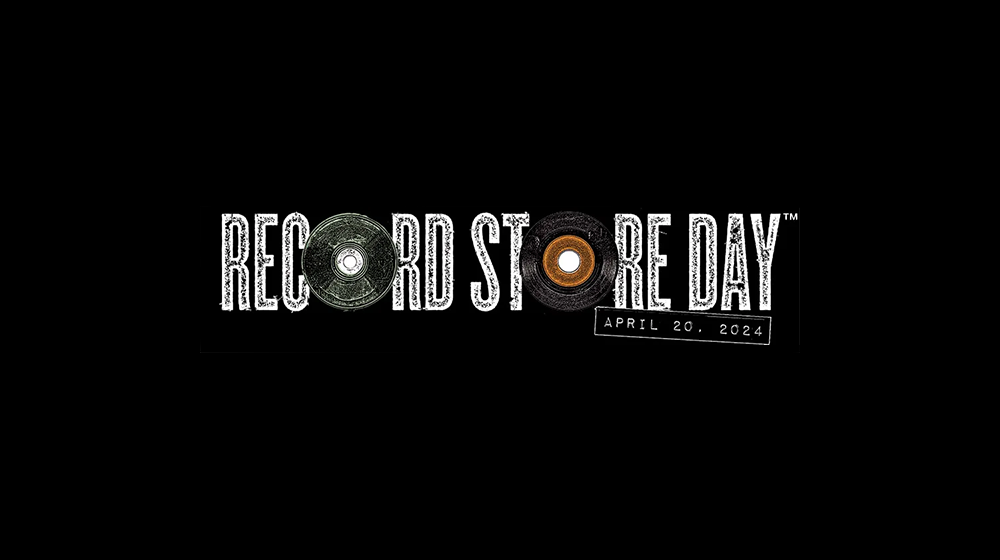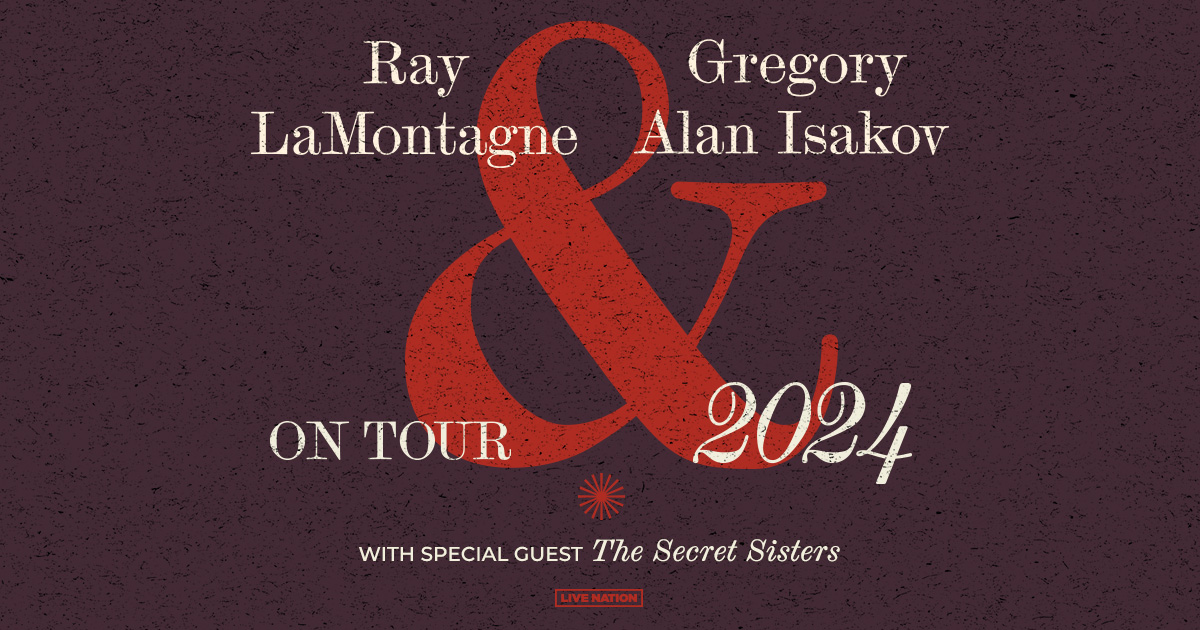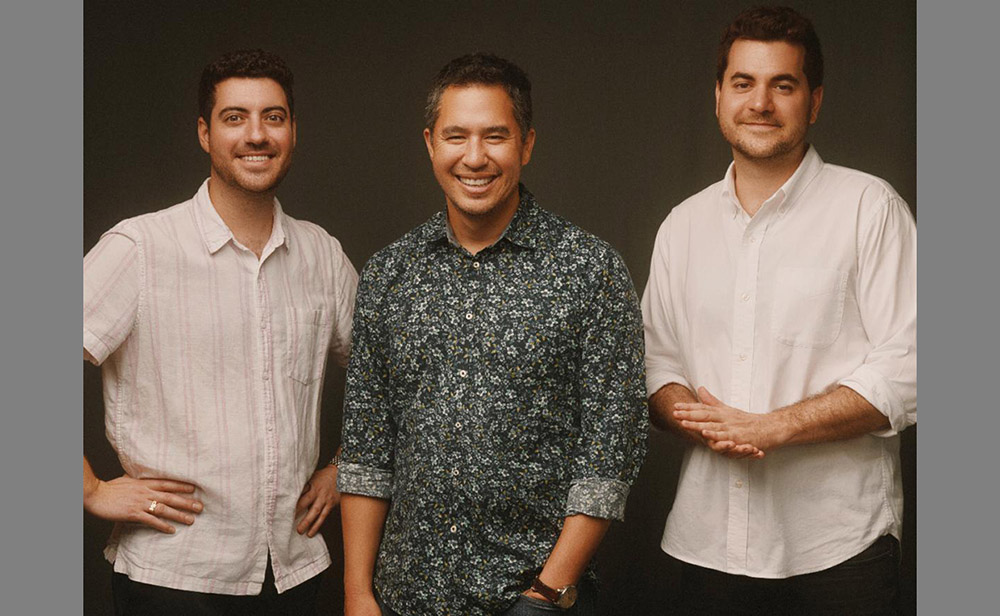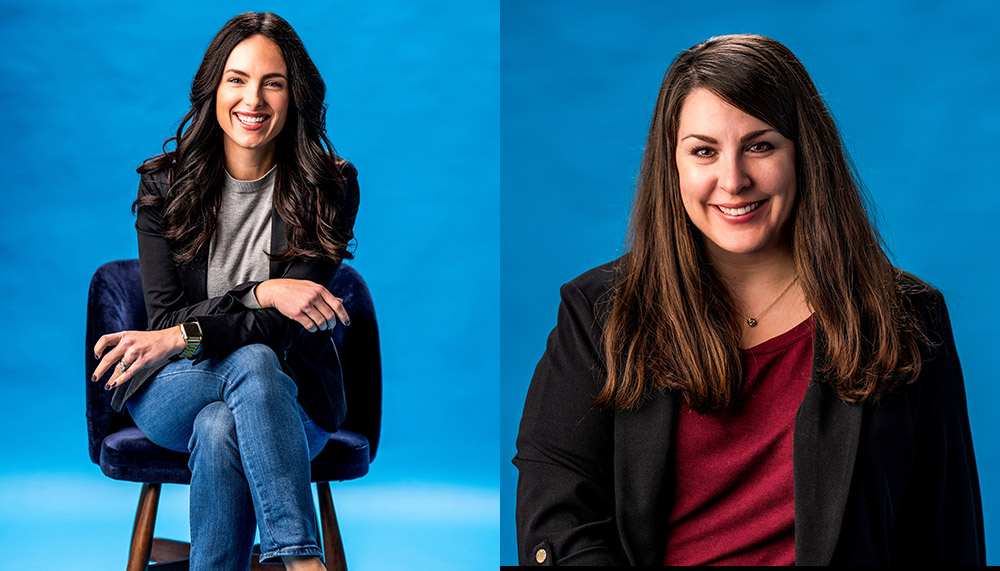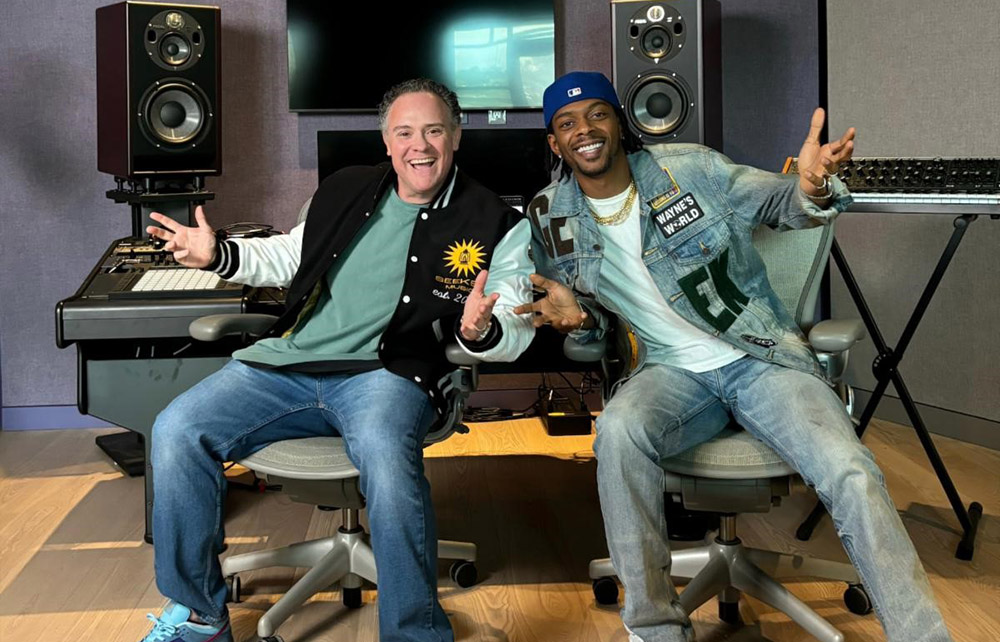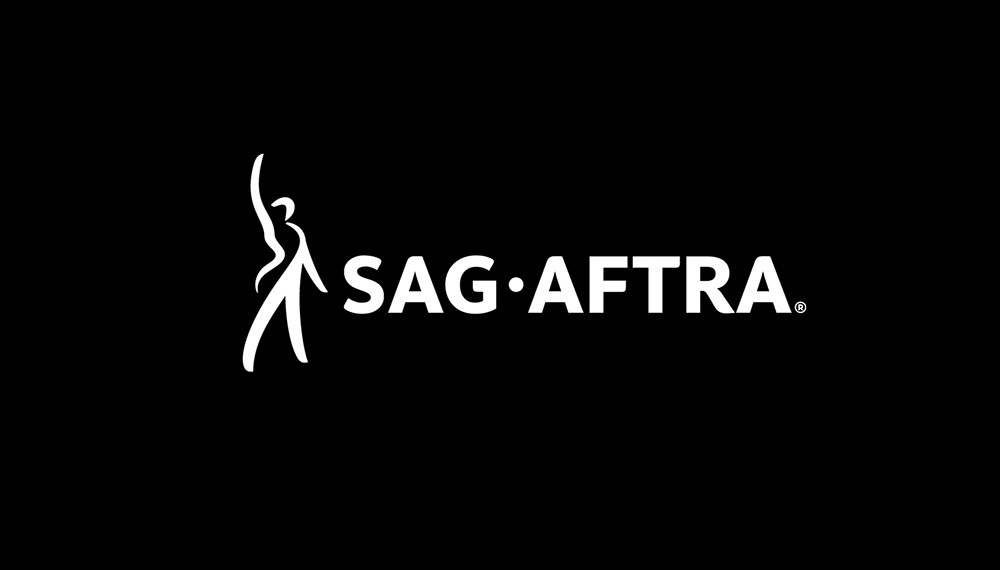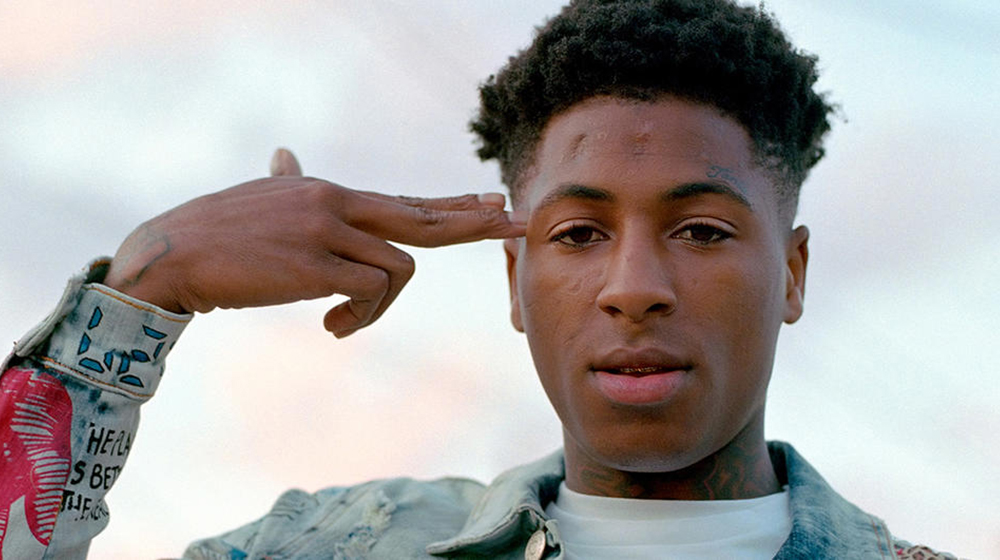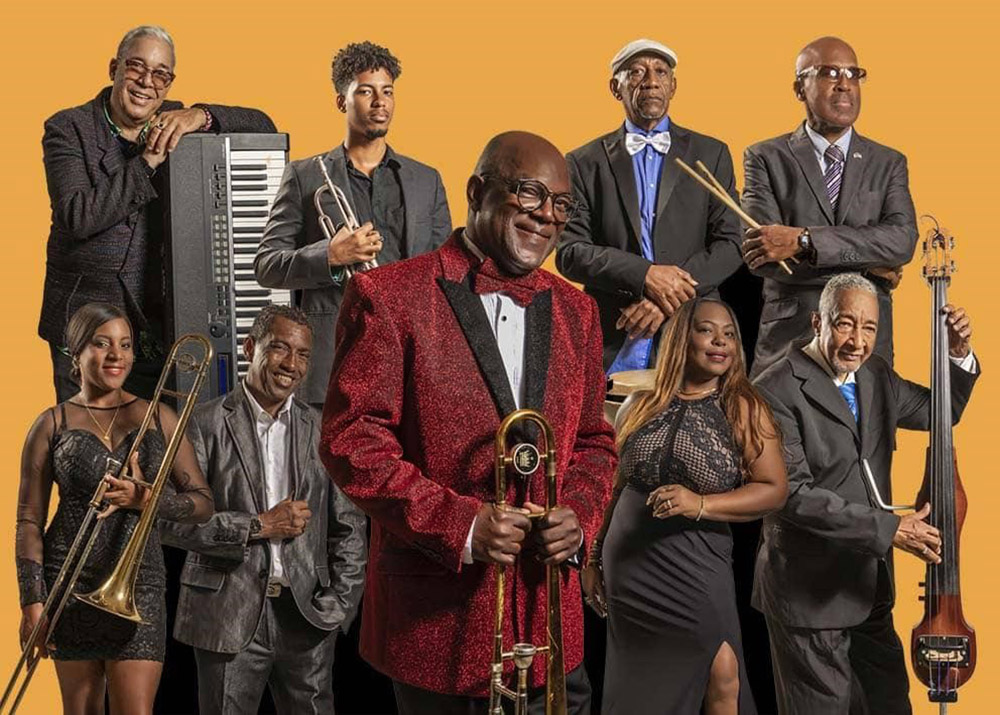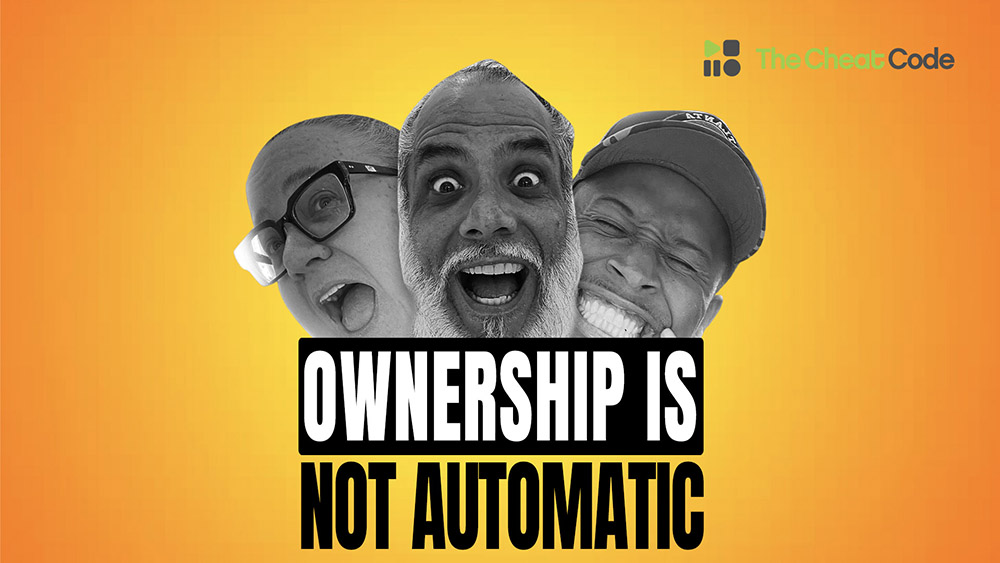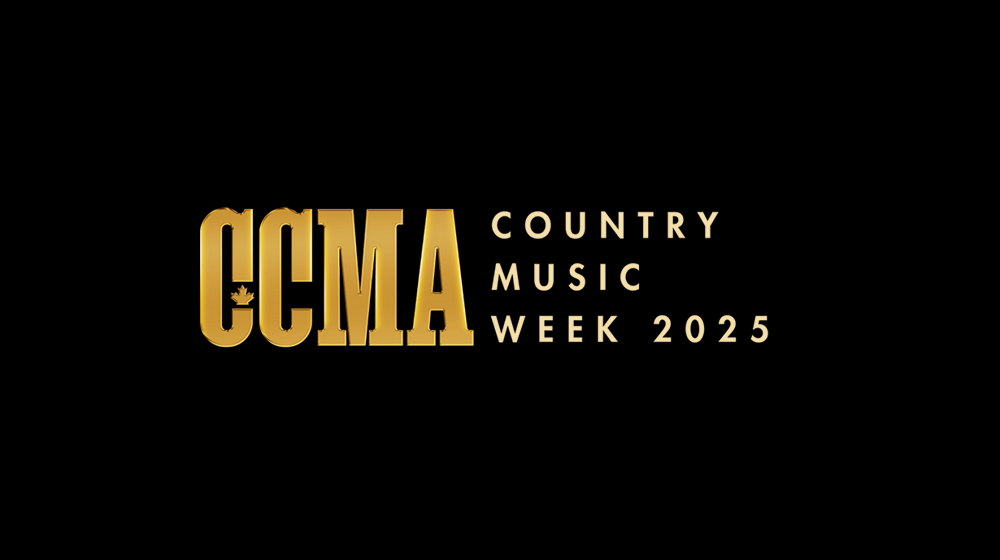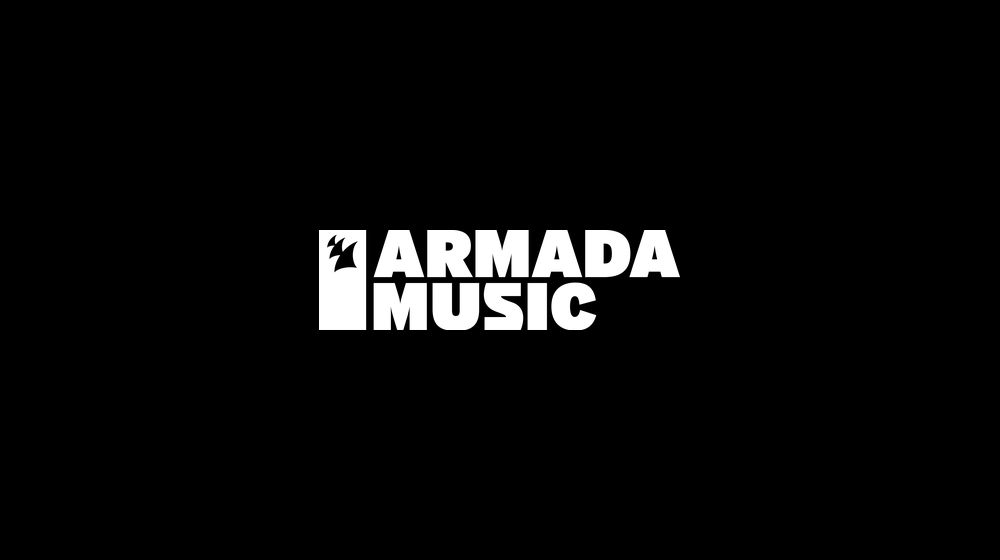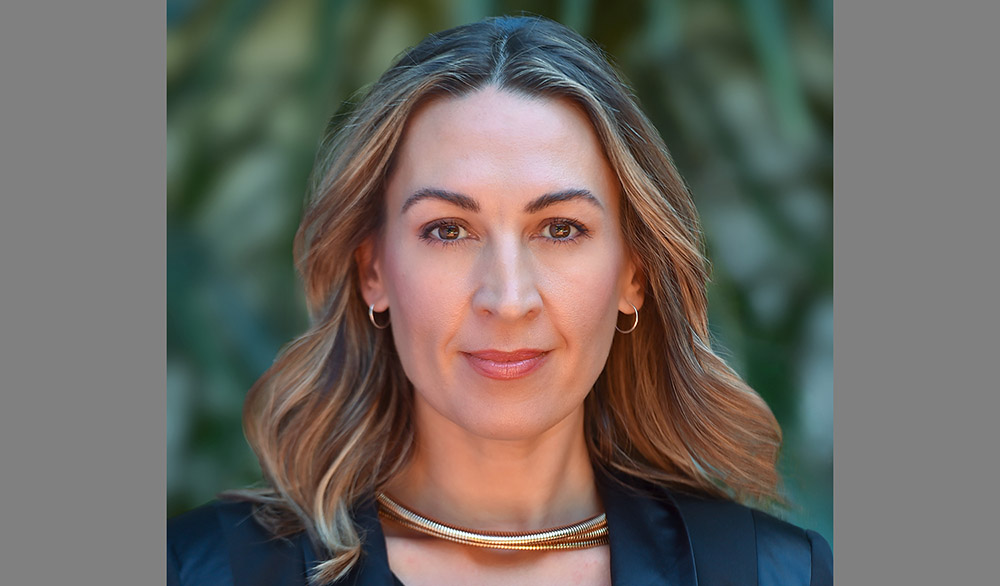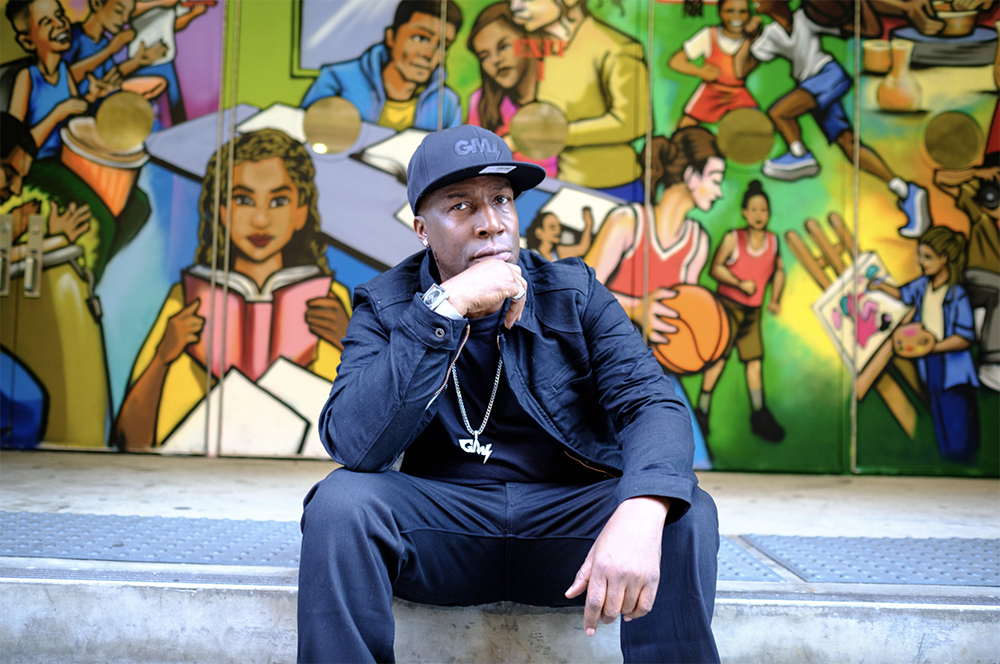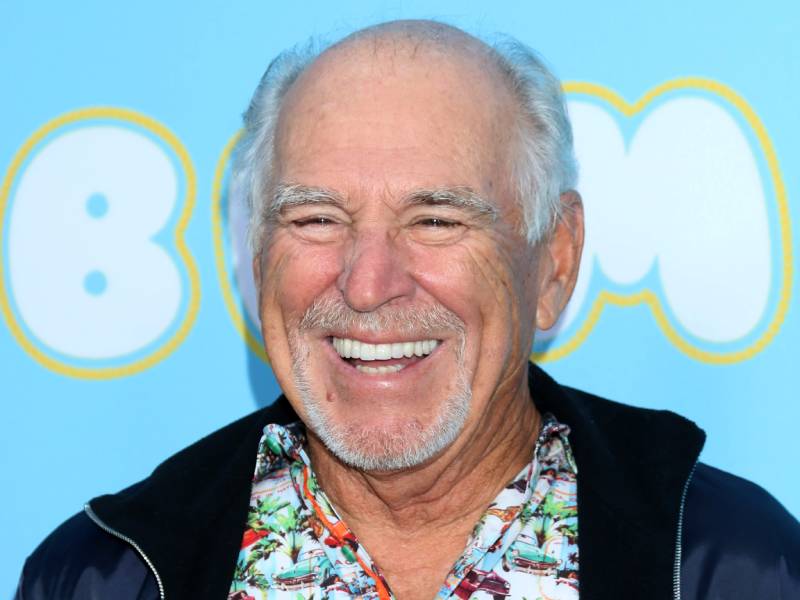This week In the Hot Seat with Larry LeBlanc: Wallace Collins, Law Office of Wallace Collins, Esq.
Wallace Collins is a highly-respected New York-based entertainment lawyer, and intellectual property attorney with a significant practice concentrating on entertainment law, and copyright and trademark issues.
His transactional work focuses primarily on structuring and negotiating music, film, TV and internet deals for recording artists, songwriters, music producers, music publishers, independent record labels, film producers, authors, illustrators, magazine publishers, photographers, models, and for clothing, fashion and website designers.
A former musician himself, Collins also advises clients on branding and marketing strategies, and on registering and protecting trademarks related to the communications, entertainment, and fashion industries. He secures and clears licenses for all forms of music-related platforms and related media.
His litigation activity encompasses representation of both plaintiffs and defendants in copyright and trademark infringement disputes; as well as in general entertainment contract disputes.
After graduating from Fordham University School of Law in Manhattan in 1987, Collins became involved with Volunteer Lawyer for the Arts and began representing Craig Mack, and Beanie Siegel and other hip-hop artists and producers in off-hours.
He mostly handled copyright and trademark matters at Kane, Dalsimer, Levy & Kurtz before moving more into the entertainment sector while Of Counsel at Stein & Stein for two years, and then at Serling Rooks Ferrara McKoy & Worob from 2000-2010. He has operated the Law Office of Wallace Collins, Esq. since.
A long-standing complaint of music’s legal community is the lack of young talent. Is there a shortage of young lawyers coming into music?
All I know is that the way that it happened when it happened for me isn’t the way that could happen now because the business then was riding on that CD—everybody buys a record they already own—boom. Everybody was a genius, and labels were signing every act in town. So if you found an artist, it was inevitable that they were going to get signed, and then you were now in the game.
The legal profession is currently being challenged by fewer major label artist signings and smaller deal sizes. A tough time to be just a music lawyer?
You still need lawyers when you are negotiating deals, but it has to be different because the major record labels used to subsidize the middle class (of artists). They signed every artist that was halfway respectable. Some artists didn’t make it, but they got to make records. They got some money in their pockets. The lawyer got a fee, and managers could survive. That all went away. They don’t do that anymore. There is no middle class. Either you are a big star like Taylor Swift, Bruno Mars or Ariana Grande or you are on the way up or you are eking out a living at the lowest level. Labels are not signing every act in town anymore. That not only dried up the (number of recording) artists, but it also dried up the (number of) songwriters in Nashville. It also dried up (business) for the lawyers and managers too because previously you could make a little bit here, and a little bit there from a lot of little things. Now that doesn’t exist. A true (music) lawyer, I’m not sure today.
Years ago, labels sent A&R teams to clubs and concerts to discover new talent. Today, A&R is checking out YouTube, and the various social media sites.
Social media, that’s a big thing. I knew the world was different a few years ago when one of the executives at one of the big labels, and I were having lunch. He talked about the difference between those days when the artist got shopped by lawyers and managers, and “You’d bring us stuff because we wouldn’t be in the clubs all of the time.” He said, “It’s different now. There is basically nothing that you can bring me that I already don’t know about. That I would want to sign if I already didn’t know about it, because all of our interns and all of our staff are looking online They are looking at the social media. They see what the public is interested in, and that is what we are interested in. Finding an act that nobody knows who they are, where do we begin? We would have to start at such an early level that the investment isn’t worth it.” The artist needs to do early development themselves or with investors, managers, and producers. It kind of shifted that middle class around.
New York and Los Angeles have traditionally been America’s primary music centers, but Nashville has evolved into being a dynamic music industry center as well, and not just for country music.
Yeah, more and more. I have clients there that used to live in New York; used to live in L.A.. and they all moved there. There are a lot of reasons. It is a more laid-back lifestyle. It’s a much lower cost of living. It’s not just country music, either. I deal with some country people there, but there’s a lot of rock, and even hip-hop people floating around the city. I have a couple of songwriter and producer clients there. I get to Nashville at least once a month for a few days. There’s enough stuff going on.
Music being consumed via streaming rather than being purchased has brought about profound industry shifts; from the value of music to the management of rights. Certainly, major labels continue to seek to participate in publishing. and many of the smaller independent labels now need publishing revenue streams to exist. At the same, time more and more companies like BMG Rights Management, which launched its recorded music division in 2011, and Kobalt Music Group, the London-based music technology company, have become music rights companies handling publishing and master rights and as well as other ancillary rights.
Yeah. I did a few deals with BMG. In some cases, the difference between a record deal being with a publisher and such is that with BMG they are doing rights management on the masters. I did a deal like this. It was really a publishing deal I did. So that stayed on the (song) copyright side. But then they would agree or arrange to also help you manage your masters. Or distribute them for you.
That really translates into not wanting the burden of financing the recording of master recordings.
Correct.
Whereas in past days the record label would finance the recording but might insist that the artist’s own songs were directed to their music publishing affiliate. Or a music publisher might say they knew a label that would be suitable for the master that the songwriter had recorded.
Correct, except the difference was when you did the deal the old school way, the master was owned by the record label. Here with the deal with BMG, you the artist are paying for it (the master), but you are going to retain the copyright, and you are going to license it to them for distribution. So when this deal ends, you get the master back, subject to whatever they might have advanced you or for whatever they do pay for the masters at some point. It’s like all these things. They (these deals) work for some artists, and not for others. If you have a (fan) base, and you are selling records, and you are making some income, that might be beneficial to you. If you have nobody who is going to buy your music, having someone saying, “We will help you sell your music, you can own the copyright,” what’s the benefit if it’s worth zero, and you can’t make money from it? Kobalt does a little bit of that too, similar to BMG.
Kobalt Music Group, in fact, has moved even beyond that model to being part record label, part publisher, and part digital tech platform. In March (2018) it announced it was investing $150 million into expanding its recorded music division, Artists Without A Label (AWAL). The new funds, more than 10 times the amount previously devoted to competing in the recorded music industry, is being used to sign acts, and to double the number of AWAL staff to 200.
Rights management is what they are calling it. “If you don’t understand how the record side works, we will help you work it for you, and we will collect the money for you. We will get a commission on it, but we don’t own the master or the copyrights.”
Many publishers also favor a similar rights management strategy because they gain firm control over placing the master recordings while not financing their recording.
Yeah, to help you as an artist. “We are the publisher, but we are not going to make money unless you make money.” So it’s still a little bit incentivized. Legally, copyright speaking, I like that concept. I wish that all of the major labels would do that. At least when you recoup your record, you’d own the master. Getting it back at some point. Right now, (as an artist) you have the 35-year term reversion, but that’s a long time to wait.
Time is running out for many copyrights.
Yes, ‘78, ‘79 and ‘80 you are running out of time now.
[Under the 1976 U.S. Copyright Act, the author (which can be the artist) of a recording has the right to terminate the original transfer of copyright to the record company, but need to act within a limited time frame. The author must send a notice for a termination date within a five-year window (starting at the end of 56 years for pre-1978 copyrights transfers and after 35 years for transfers made after January 1, 1978), or the right to terminate is lost forever.]
Are most artists and managers aware of these deadlines?
The short answer is yes. Even going back to Prince. I think that part of his re-signing with Warner Brothers (in 2014)—I didn’t do the deal—but remember that he was (according to Prince) a “slave,” and he left Warners (14 years earlier)—and then suddenly he was back with Warners, and they made a global deal. My understanding was that his side gave notice that they were terminating the copyrights because it was from ’78, ’79 and ’80. So the label came to him and said, “Fine”—and like a BMG deal—“You can own the masters, but why don’t you license them back to us? We will give you whatever percentage of the monies”—80% or 90%–“but since we already have them in our system, and we know how to promote them, and we were there at the beginning– yes on paper you own the masters–but why don’t you give us a perpetual license, and we will give you a huge advance?” They made that deal. Whenever you hear that somebody settled a dispute over a termination, I think they made a new deal. That is what it is.
It appears that is what Irving Azoff has done with the Eagles as well.
Right, and the idea (of reversion) at the time was to give artists 35 years later a second bite at the apple. When they are young, and new artists they don’t have any idea of what the real value of their recordings are. If it’s worth nothing, it’s worth nothing. If it’s worth something, give them a better piece of it. Most of these new (recording) deals today may say on paper that you own the master but, at the end of the day. I don’t know.
The cornerstone of the music industry for decades was that artists would take a hit in royalties and recoupable charges on their first and second albums; break even on their 3rd album; and re-negotiate with the label on their 4th album if they’d become successful enough. The label might agree to re-negotiate, but it sought an extension of the recording contracts. Artists rarely were able to own their masters at any stage.
But that was always the re-negotiation. “We will give you a better deal but we are going to extend a little bit longer.”
Sound recordings are not on the statutory U.S. Copyright list of 9 categories of commissioned works that may qualify as works-for-hire, but recording companies have long argued that a recording is under work-for-hire—or “work made for hire.” Their view has been they commission a work from an author (an artist), do retain ownership and, in fact, should be considered the legal author of the work. So artist likely wouldn’t be able to reclaim rights to their works after 35 years.
Right. That’s an argument that the recordings could be subject to being work-for-hire. I’d argue and a lot of lawyers would argue that, “Under general legal principles for work-for-hire they are not. A sound recording is not because you (as an artist) are not under the control of your employer, the record label. It is not an employment situation. You are hiring your own people, making your own record, and just delivering a finished product. Much more like an independent contractor. You don’t get unemployment benefits. It doesn’t matter if a label says work-for-hire words, you have to have certain elements that reinforce that, and they don’t.
Most judges would study a standard recording contract and declare it an “unconscionable contract” with terms so extremely unjust, or overwhelmingly one-sided in favor of the party who has the superior bargaining power, that they are contrary to good conscience. Still, those contracts are the norm in entertainment.
It’s funny that you say that. Years ago, when I was a new young lawyer, I had a case in the Southern District of New York where we prevailed. We were suing a bootlegger for copyright (infringement). But the defendant said “Well, he’s not still signed to your record label. He gave us permission.” We said, “No, he is still signed to our record label.” So the judge took a little recess, and took our recording contract–which was a typical recording contract with multiple options for albums; and it said, “as long as you are signed to us as an artist, we also own the publishing.” I will always remember when she came back into the court, she was distraught, “Oh my gawd. Wow. What a one-sided agreement.” That word “unconscionable” must have come up multiple times. She said, “I am reading this and it appears that for the artist, it isn’t even clear when his first option ends. Then the label—you use the word option—but the label has the right to keep him or reject him. He could be in this deal for a very long time. And if he doesn’t record, there’s an instant extension.” She was going through the contract. This was an independent label with an independent artist, and I remember thinking, “That’s the reason why major labels would never want to get this far in a lawsuit because they don’t want the courts to look at the contracts, and go, “Oh, my gawd. What are you doing?’”
Major labels avoid court as much as possible.
Bottom line, they don’t want to be in court because they don’t want to see how it works.
Major labels would also rather have disputes heard in the Second Circuit in New York than the 9th Circuit in California, a state far more supportive of entertainers in general.
Even more so, yes. As I said this was New York, and the judge was saying, “Wow this contract is…..” But it did work in my favor. The judge ultimately said, “I do have to agree this contract is still in effect. I don’t know when it will end but, as of now, it’s in effect. And that’s all I need to determine.” Then we went on with the case.”
In most cases, if an artist disputes a contract they’ve signed, the judge will say, “Hey kid, you signed a bad deal. We are not going to rewrite the contract.” Even if there’s a breach. Maybe in the UK, that might fly, but not in the U.S. where courts balk at rewriting contracts.
I agree 100%. I always tell that to artists that I work with, “Don’t sign a bad deal thinking that you will make it better later because courts never want to rewrite deals” This was more the idea that, if I am in a case, and some part of this case is the judge looking at the recording agreement or whatever agreement it is, and seeing how one-sided it is, that it might make them lean more to trying to find in the artist’s favor any issue that they can because they realize how one-sided it is. But not rewrite the agreement. Not let you out of the deal. But just being shocked how onerous and unconscionable the contract is would shadow or influence their way of thinking because judges are human. They look at the situation, and they want to do what’s fair. But they don’t rewrite agreements, and even a breach doesn’t allow you to terminate an agreement. It only allows you to force the other side to do what they are supposed to do.
California limits employment contracts to a term of 7 years. However, there is a qualification with music contracts — while the record label may not force the artist to make another album after the 7 years, it may sue for money damages. So, the record label may lose the remedy of forcing performance, but they retain a breach of contract lawsuit for damages past the 7-year mark.
Right, right, I think that California also has a statute that talks about how many years, and how much money you have to make as a minimum income to go beyond each year up to 7 years. But it’s not a high enough number that is going to break any major record label or company that couldn’t pay it. Maybe, an individual manager or something wouldn’t pay it.
California Civil Code (Section 3423) requires that a record company must make increasing minimum annual payments to an artist in order to obtain an injunction; .only if it contractually guarantees the artist $9,000 in the first contract year, $12,000 in the second year and $15,000 per year in years three through seven.
Right, yeah. But if you can’t generate a certain amount of income in a certain amount of time, be honest, then you should really be able to look elsewhere. Labels are different because they are, in most cases, putting up money right from the get-go.
They used to do that.
Right. It’s changing.
You cut your teeth in hip-hop representing rappers and producers. With producers putting together a track, then working with rappers, it often comes down to who did what? What is the publishing and recording split? Then, it can get complicated if a producer says, “That’s my track you’ve sampled.” A messy field?
Yeah, mainly because of that and because the producer is also a songwriter, and you might have multiple rappers. There’s no exact math to break it down. Then what happens, as the publishers like to say, “We have people claiming 110% of this song,” and the record label will say, “We can’t pay anybody anything until the total is 100%.”
I like the Nashville rule of whoever is in the room gets an equal split of the writer’s share.
Right, in for a word, in for a third. I did an arbitration years ago in Nashville. I can’t say any names. I was flown in as a neutral lawyer. They decided that, rather than going to court, let’s have this guy work it out. Long story short, but in the end, when everybody agreed that there was something that was not necessarily copied—it doesn’t have to be intentional; it can be accidental—from one song to another, I began to go, “You know, it’s part of the lyrics, but not the music. It’s part of the music, and not the lyrics.” And I’m doing my New York City math. They all stood up, and said, “No, we’ll just split it up, equally.” I was like, “What?” They said, “That’s the Nashville way. We are not going to go “Well, half the lyric is worth 25% and then the lyric of the chorus is this or that.’” The whole song wasn’t a copy. It was just a little bit of the chorus melody. And I started saying, “It should be…” and they were, “No we’ll just split it equally. That’s it. We’re done here.” Everybody left the room.
I have a friend and he and his partner keep a tape recorder running whenever they write, and they will count the lyric lines for credit splits. They rarely have had disputes over the decades of working.
As Harry Connick Jr. might say, “I’m Harry Connick Jr., and you are just an unknown lyricist, so the deal is 80:20” or whatever. If that’s your deal, you just have to get it in writing. The problem is that the courts are not going to care if one party is more well-known than the other. The courts aren’t going to say, “Well, the chorus is really catchy, and the artist says ‘It’s worth more than 50%, and your verses weren’t all that great.’” That’s not what judges do. That’s not what juries and judges are supposed to do. In a court, what they will do, is they will say that if there is nothing in writing that denotes a specific 80:20 or 60:40 split then “we are going to make the determination. How many people contributed to the song overall. Was it one? Was it two? Was it three? Was there an intent to collaborate? Did these people write the song together? It doesn’t matter how little or how much what one wrote if they are all contributing, we are going to divide it (the copyright) equally. Three ways among three. Four ways among four. That is the best thing that we can do as a court .”
That’s why I always tell clients, producers or songwriters, “If you are working just make sure you get a split sheet when you are done. If you have agreed to anything other than equal, the Nashville way is technically legally the best that you are going to do in a court of law, anyway.” So, if you think that you should be getting 80% as a co-writer, or 80% with two other guys and they should be getting 20%, you better get that in writing because no court is going to take your word for it. They are only going to divide it equally because there’s no way to make that judgment after the fact.
With hip-hop, unless there’s paper trail, which often there is not, a producer should be receiving producer percentage points, but also monies for a percentage of the music publishing. That becomes critical with an advance or with future royalties.
Right, and that is a thing that kind of developed in the urban world, and isn’t true in country or rock. The producer produced the sound and unless he was actually a writer, and did write, he didn’t automatically get any credit as a songwriter. George Martin was technically, probably by today’s standards, a co-writer on a lot of Beatles’ songs, but that isn’t what he did. He got paid as a producer, and he was helping them make their records. Nowadays, and it really started in the urban world, since the producer would sometimes make the track he would create the whole bed and then circulate it around, and the rapper would rap over it or multiple rappers would rap over it. Then it became a thing where, “Well, technically I wrote the music, and you wrote the lyrics, and the melody. So I get 50%, and you guys split the other 50%.” In the urban world that has kind of been the way it’s been, and it’s not completely untrue because the rapper isn’t playing guitar chords, and making up the song. The producer, in effect, is playing the guitar chords. They are showing them (the rappers) the music, and they are just making the lyrics. So they are really making lyrics, and the producer is making music. That is how that evolved in that urban world, but it is still mostly in the urban hip-hop world where the producer is getting a chunk as a publisher, as well as points for being the producer.
Is it always that clean-cut?
That sometimes creates a problem because if you have a guest artist and three other rappers then they may argue, “Wait a minute if the producer gets 50% and we have to divide 50%. So I get 15% or I get 12.5%. You are the main artist, and I am the guest artist. i want this much.” There’s a lot of legal wrangling in that area to get that sorted out. Do it as early as possible because what you don’t want to happen is the record comes out, and it’s a hit and everybody’s’ claim totals up to 110% so nobody is getting any money because they (labels) aren’t going to pay until it totals up to 100%. That’s the way it works.
In the old days, it was, “My name is Phil Spector, and I co-wrote your song.”
Yeah, there was a certain amount of that, and still today. In country, some of the producers are songwriters.
Many country producers have their own publishing company.
Sure, but it is not as extreme as in the urban world where producers are really creating the music alone and then handing artists the music to rap over. Then, they get a piece of the publishing, and they get paid as a producer, and you are the artist.
Having represented producers, artists and songwriters working with independent companies Is a lot of your time spent chasing money owed?
Yeah, that’s how I got started in the business. A lot of the bigger artists that had record deals already had lawyers, but the guys that would come to me, like a producer, “I produced this record. That’s my track but some big artist is singing over it.” They’d bring you the ProTools, “Look this is the track.” Then you send your letter to the label, and they’d contact the artist, and they’d filter it down the chain. They’d find out some guy, who had claimed to be the producer, had given the track to somebody who had given it to the big artist who recorded over it. They paid the guy who had basically taken it from some other guy’s recording set-up or website or wherever it was posted. So that’s how in the early, early days in the early ‘90s that’s partly how I got into doing that. That led to a couple of hip-hop artists that came to me because…
You are credited with handling legal for Craig Mack when he signed to Puffy’s, Bad Boy label, and for rapper Beanie Siegel who signed to Jay-Z’s Roc-a-Fella Records.
Right. What it was in those early days rap was a new thing, and I was a new lawyer. Some of the bigger lawyers, I guess, couldn’t be bothered. They had the big rock bands, the hair bands. They were with the big money. So these guys (rappers) couldn’t find someone who would say, “Okay give me a little (money) and we’ll make a deal, and I will get more later.” A couple of law firms wanted $1,000 to walk in the door. They didn’t have a thousand dollars. With Craig Mack that was the story. The manager called me and said, “I have this guy, and we might have some interest from the label, and I need to do my deal with him. But I have no money.” When you hear those words you usually think, “Well, wait a minute.” He said, “Can we just come in?” I said, “Okay, it’s a quiet afternoon. Fine, C’mon in” what do I have to lose? I ended up doing work with them and they got signed to Bad Boy. That was the beginning of my dealing in that area.
As hip-hop exploded, the mainstream music industry largely stayed away. Radio wouldn’t play hip-hop. Tours were nearly impossible. The majors stayed clear of hip-hop during its formative years. Legal firms, certainly in New York, being then almost lily white, were not about to open their doors to the urban world.
It was all Puffy splitting from Uptown (Records), and making his own thing.
That was in 1993 when Puffy’s contract was abruptly terminated due to tensions between him and Uptown’s founder Andre Harrell. Within two weeks of that dismissal, Puffy established Bad Boy Records and took The Notorious B.I.G. along with him. B.I.G. himself name dropped Mack in his 1994 Badboy breakout hit, “Big Poppa,” with the line, “I got more Mack than Craig.”
I just happened to be lucky. It was a time that I was out there. I was on my own. I would get these random calls. You’re right the big law firms were “white shoe” firms, and they were dealing with the rock bands, and that was the big bucks. The attitude was “I don’t need this. What kind of money is this going to make?” I was like, “Hey, I’m new. I need some clients. Alright, c’mon in.”
I know Bryan “Birdman” Williams, and he and his brother Ronald (co-founders of Cash Money/Young Money) are pretty sharp.
All these guys, Puffy, Jay-Z, I’m dealing with the lawyers, everybody knew what they were doing.
In America, it’s fairly easy to register music with the Copyright Office at the Library of Congress.
It is supposed to be within 90 days of publication. So within 90 days you commercially release it, put it out to the public. In the old days, it was a more formal thing. “Oh we’re releasing a record, let’s do it.” Now I have to warn clients, “If you post a live video of you singing that song or a producer takes your track up to a YouTube video you just published it. So if you want that protection of a registration…it doesn’t mean that you don’t have a copyright. You have a copyright when you affix it to a tangible media. So when you record it, when you write it, when you make that video of yourself to disseminate you own a copyright but you haven’t registered the copyright.
If you fail to register your music with the Copyright Office at the Library of Congress, and you are involved with litigation, and you win, is it true you won’t get your legal costs covered?
Correct. If you don’t file the form within 90 days of publication then you are not entitled to legal fees if you prevail, and you are not entitled to statutory damages which is kind of a mathematical formula for a fixed amount of money which complicates the case because that means you can’t just say, “Oh, that’s $10,000 for willful infringement” times how many records which people do sometimes. You have to get discovery on the finances and do the mathematical calculation of what the amount of money would be. It makes it harder for you as a plaintiff and de-incentivizes the defendant to make a deal.
Whereas, if you’ve got your copyright registration filed, the person that you are coming after, assuming that’s it’s a legitimate case, the label or the artist that is the defendant is going to say, “If I fight this and lose not only are there our legal fees but they can do a mathematical formula based on statutory damages of what I owe that has nothing to do with reality. So I have an incentive if I infringed to make a deal.”
I tell clients for $35 file your copyright. You can do it online. You can upload an MP3. It’s an insurance policy that is going to pay a lot in the unlikely event that you get infringed or somebody samples your music or whatever it is. You really are going to wish that you had done this. I always advise clients once you start putting it (your song) out there, putting it on your website, putting it on YouTube, register a copyright and make sure, in case anything freaky happens, that you have got a lot of ammo. A lot of protection. You have a legal fee so if you prevail you’ve also got statutory damages. The biggest benefit is not that you get money if you win, but you will probably settle the case because the other side is probably not going to run that risk.
The current Steely Dan dispute underlines the need for bands to have a legacy plan to deal with a group ending or one of the members passing away. How commonplace are legacy plans?
Not common enough. I have had clients who do that. Not only on the band side, but on the business side. Like managers who form a company or artists when they form a joint venture because it’s an issue, and it (a dispute) can come into play. I’ve had clients come to me and say, “Look we are partners, but we don’t like each other’s wives, and if one of us dies, I don’t want his wife to be my new partner.” Usually what we’ve done is…
[Donald Fagen has filed a lawsuit against the estate of Walter Becker, Fagen’s partner and bandmate in Steely Dan for decades. At the center of the legal action is control over the on-going use of the Steely Dan band name. In 1972, Becker and Fagen entered a Buy/Sell Agreement. This usually means that in the event someone quits a band or dies, the band as an entity would purchase all of that member’s shares. In this case, as the sole living member of the original Steely Dan, Fagen would become the sole owner of the band itself. However, after Becker’s death on Sept. 3rd, 2017, his estate sought to appoint his widow as an officer of Steely Dan, retaining 50% ownership while stating that the Buy/Sell Agreement, dated as of October 31, 1972, was no longer in effect. In Fagen’s view, the 1972 agreement is still in effect.]
Donald Fagan doesn’t want Walter’s long-time wife Delia Becker as a partner.
Right, and on paper that is what it (the Buy/Sell Agreement) says. That when one partner dies they get their share of whatever money up to that day. Another way to deal with it is as an insurance policy. This might be less doable for a smaller artist, but when there’s managers and other types of investors doing business, businessmen, they might put in a provision that says, “If that happens, the company in the meantime will have life insurance on each of our lives that pays X amount of dollars, and the proceeds will go to the widow or the heir of the member who dies.” But the company stays with the guy who lives. There are a lot of different ways to deal with this. You can have a fair market value of the business at the time that the partner or band member dies. But it’s tricky (setting up) when you are dealing with teenagers, and young 20-year-olds who don’t want to hear, “What if you die some day?”
Just a week after the Sen. Orrin G. Hatch Music Modernization Act unanimously cleared the Senate, the U.S. House of Representatives voted this week to unanimously approve the Senate’s edition of the bill. The bill now moves onto the desk of President Donald Trump, who is expected to sign it into law.
In an article leading up to the legislation you wrote that you feared that one of the pitfalls with the bill might be that it wouldn’t deal with directing the mechanical licensing collective to distribute unmatched royalties on a market share basis to music publishers or to those songwriters that do not have an exclusion clause in their contracts. What the music publishing industry calls Black Box payments. But the Senate seemed to have been in close contact with their counterparts in the House of Representatives, and with the music industry as they were changing the law, and many of these issues were remedied.
Some of that was remedied along the way, yes. That was an early stage of the bill that was circulating. I’m on the board of the Songwriters Guild so they had reviewed it and discussed a couple of these issues. The big one was, right, the Black Box (payments). The bill contemplates establishing an industry board that would solve problems that come up along the way. In other words, you don’t want politicians making decisions about stuff that they don’t know about. “So we’ll set up a board that will regulate, and make decisions to implement this.” I guess that one of the issues was that the publishers wanted to have 51% (of the representation) and leave the writers with 49%. So the problem, if you don’t have equal representation by the writers, is that some of these issues would be a problem. Like how do you divide the Black Box monies? Well the publishers will all say “Give it to us, and we will sort it out, and we’ll pay the writers.” While the writers will say, “Give us our share directly, instead of taking it, because we don’t always know what we get out the other end.”
[The Sen. Orrin G. Hatch Music Modernization Act rewrites Section 115 of the U.S. Copyright Act to create a single licensing entity that will oversee the administration of mechanical reproduction rights for all digital uses of music, such as interactive streaming offered by Apple, Spotify, Amazon, Pandora, Google and others. It also repeals Section 114(i) and, consistent with most federal litigation, utilizes random assignment of judges to decide ASCAP and BMI rate-setting cases.
The CLASSICS Acts (Compensating Legacy Artists for their Songs, Service, & Important Contributions to Society Act) will benefit artists and songwriters who recorded music before 1972 by establishing royalty payments whenever their music is played on digital radio. Currently only sound recordings made after 1972 receive payments from digital radio services.
Under the AMP Act (Allocation for Music Producers Act) for the first time producers, and engineers are eligible to collect digital royalties and provides a process for studio professionals to receive royalties for their contributions to the creation of music.]
Along the way to the final version of the bill, pushback had come Blackstone Group, whose mechanical licensing company Harry Fox Agency stands to be greatly impacted, as well as Sirius XM, and Music Choice. While issues with the Blackstone Group found resolution, Sirius XM has continued to object to provisions in the bill that force the satellite radio company to pay royalties on pre-1972 recordings.
Right. Claiming that they were covered. In the meantime, subsequently, some of the issues, particularly that one about dividing the money that I had raised, were resolved to the satisfaction of all the parties. As it moved forward there were other issues. Amazon had an objection. Google had an objection. SESAC, at one point, was holding up the bill. So every step of the way, there was a compromise. that allowed SESAC and Blackstone and others to say, “It’s not perfect, but it’s good enough that we will say. ‘Fine. Move it to the next level.” Suddenly, it had gone through all of the objections and it was before the House, and before the Senate. What I kept hearing from the politicians to the music business was, “You guys figure it out. If anybody objects, we are not going to take it. You all need to agree unanimously that this is a good move, and then we will vote it through because as politicians, other than a few of us maybe, we don’t know what the music business does, and we don’t have the time to learn all of the details of this. So you the industry needs to come to us with what will work for you.” And I think that is why it was such a large vote in favor once it got up to that (Senate) level because all of the industry groups, in general, were in agreement that this was good enough for now. It was a big step forward.
The problem is that each sector of the American music business has a piece of the pie that they seek to protect. For example, music publishers suffer from a legal framework that prevents the creation of a stand-alone buyer-seller marketplace with mechanical and performing rights, specifically compulsory licensing where they are forced to give a license.
There’s no negotiating room. A contrast to Europe and other markets like Canada.
Then there the controlled composition clause on mechanicals—how much the record company has to pay for each controlled composition–known as a 3/4 rate, 75% of the statutory rate—has been dropped by labels in many territories, but not in the U.S.
Yeah, years ago I wrote an article in Billboard setting it out, saying, “This is not fair. This is a statutory set rate minimum not unlike the world of interns. “Oh, you are an intern so we don’t have to pay the minimum wage.” That kind of sense. “You are a recording artist so we don’t have to pay you the minimum mechanical rate. We are going to pay you less. Welcome to the family.”
Where did you grow up?
I was born in Brooklyn. Then when I was three or four my dad moved us out to the suburbs of New Jersey across the Hudson River from Manhattan because he was working in Manhattan so we were close.
To where?
Oradell, New Jersey in Bergen County. I equate it to the “The Wonder Years” TV show. Quiet streets where the kids could play and the adults were somewhere else. You were on a safe street. You came home for dinner. It was a very safe kind of bucolic neighborhood suburb, maybe, a half hour outside of Manhattan.
Your father was a corporate lawyer for Philips?
He was and his father before him was a lawyer.
You were in bands during high schools and college?
I got the bug, the Beatles’ bug, like so many. I still remember not seeing the “Ed Sullivan Show” with the Beatles (Feb. 9, 1964)–this is so clear to me—I went to a Catholic school, and arriving on the playground that Monday and saying to somebody, “What happened? What’s with the hair?” because everybody had their hair brushed down.” “What? You missed it.”
I was, maybe, 8 or 9 years old, and It was third or fourth grade.
So the next weekend (on Feb. 16th) I wanted to watch the Ed Sullivan show, and my parents said, “No, you can’t. We’ve heard…” all of the bad stuff, right? Typical of a middle-class family. While I didn’t see the Beatles, one night I saw an English rock band that was being advertised to be on Ed Sullivan. That snuck under my parent’s radar because it didn’t say “Beatles.” I just turned the TV on, and I saw the Rolling Stones. So the first group that I saw was the Rolling Stones. That’ll teach you, right? You try to filter the Beatles from the kid, and he ends up getting the Stones instead, which I also loved. The Beatles and the Stones were my bands forever and forever.
Back then you were either a Beatles or a Stones fan.
In the early days, it was more Beatles for me. I’m still a big Beatles fan. They were cool, and pretty boys, and whatever. I was always aware of the Stones, and I liked them, but it wasn’t really until when I was going to college and playing in a band that I met some people in college who were really into the Stones, and that’s when I started to focus more on them, and became a bigger fan of that kind of raunchy rock and roll.
Did you play guitar in your band, the Dynomiters?
Guitar and sang and mainly wrote the songs or co-wrote with other members of the band. I was the driving force.
Tell me about “We Want A Rock & Roll President” by the Dynomiters on Epic Records in 1976.
That was the first single. Jimmy Ienner was the executive producer. He’s the one the found us. We had made some demos of our recording and we’d circulate them on cassette. We would try to target people like the (Jimmy and Don) Ienners because Jimmy was doing the Raspberries power pop, and that is what we thought we were.
As well, Jimmy was producing the Bay City Rollers.
So we sent him the demo of “We Want A Rock & Roll President.” He liked it, and he wanted the Bay City Rollers to do it. We had written it. We did our demo and he thought it was perfect for them. But two weeks later Jimmy or his company (C.A.M. U.S.A.) told us, “We want you to do it.” The story I heard later was that the manager (Tam Paton) for the Bay City Rollers felt that they didn’t want to offend anyone in America, even though the song wasn’t offensive. As foreigners, he felt that they should be talking about the American president. Jimmy got annoyed, “I think it’s a #1 hit, right?” So he signed us to a mini-production deal and had us record it, and then got it signed by Epic. It came out, but there was a lot of weird stuff. It got delayed.
You had a singles deal.
A singles deal and the record was released 60 days before the election (held on November 2nd, 1976 when Democrat Jimmy Carter defeated incumbent Republican President Gerald Ford). So there wasn’t time to promote it through that old school way of secondary stations and then onto the main stations. It got some airplay here and there, but it didn’t get up there. Also, it came out more poppy than we intended. We heard ourselves as more the Dwight Twilley Band–power pop, but a little edgier. The production was a little more shiny, and pop. The content wasn’t all that heavy, kinda funny.
There wasn’t a follow-up single on Epic.
We started working on a second single and then we got dropped from the label. Then Jimmy or his company moved us over to United Artist Records. So we put out one single “Crying” and we were working on an album.
You attended Fordham University while you were in the band?
I was at Fordham. I played all through high school. I was going to college because my parents felt that I should. But I stayed in the New York area. Most kids go off to college far away. I was living at home, and going to Fordham because I was doing the music, and I really felt that we had momentum and something was going to happen. I’m glad I stayed there because in my sophomore year that’s when the connection happened with Jimmy Ienner and “Rock and Roll President.” We made the record over the summer, and it came out in the Fall. I finished through at Fordham. I was able to get my classes at certain hours of the day and then somehow come in during late night and get it done. I don’t know how I did it. I was young. That’s how I did it.
Then you were at the Fordham University School of Law. Back then there were no specific entertainment law curriculum. You likely took intellectual property and trademark courses.
In law school, yeah. There was a copyright class. There may have been an entertainment and media class where you learned basics about the film and TV businesses, and the music business. Trademark and copyright. It was all general. There was one course for one semester. It just hit the highlights, really. A lot of what I learned I either knew already because I had been an artist. I sort of self-managed the band even though we had managers over the years. I was the band leader, so I was the liaison between the total music guys, and the outside world. I learned a bit and did the record deals with lawyers. I learned enough to know some basics. The first couple of terms I did corporate law but they had copyright and trademark issues so I was getting involved in some of that. Then I got out and started practicing law.
There were very few books on the entertainment business then. Only Diane Sward Rapaport’s “How to Make and Sell Your Own Recording,” published in 1979. It was prior to Donald Passman’s easy-to-read primer, “All You Need To Know About The Music Business,” or Todd and Jeff Brabec’s music industry primer, “Music Money And Success: The Insider’s Guide to Making Money in the Music Business.”
My dad had given me “This Business of Music” (Billboard Books, first published in 1985).
A near impossible read.
Looking back, I really tried to get through it. It was so hard to read that book. It half-way turned me into a lawyer. By the time you got through it, you knew all of the lingo. I learned a lot from it but in the wrong kind of way. It opened my mind up to how complex the business side of the music business was way before I was in it. But there were music seminars and all the information that’s out there. By the time the Brabecs’ and the Passman books came out, I was already a lawyer. They most certainly do enable people to understand better the business that they are dealing with.
Upon graduating from Fordham University School of Law in 1987 you may have wanted to immediately practice entertainment law, but finding a firm that would pick you up would have been an obstacle.
Yeah. Everybody said, “Well we want you to have experience.” I was like, “How do I get experience if you won’t hire me?” Yeah, there weren’t that many entertainment firms. My first law firm was Townley & Updike where I did corporate work and some copyright and trademark litigation work.
You became involved with Volunteer Lawyer for the Arts.
While I was corporate lawyering, I did some Volunteer Lawyer for the Arts. I started going to some music conferences. (Executives from) Harry Fox and BMI and everybody were on panels in the late ‘80s, and early ‘90s. The business was booming. So there were all kinds of receptions and cocktail parties and networking events. I started meeting people. Some of my old friends who had been in the band or around the band would say, “You are a lawyer, maybe you can help me with this.” So over a two or three year period, while my day job was being a corporate lawyer, during all my free time I was helping people do management, agent and band agreements; whatever it was. I realized, “I like this so much better. This is what I want to do.” It took awhile. There was a manager of a band that was introduced to someone who had some (legal) matters and he started giving them to me. His M.O. was that I was less expensive than the big firms he was using. So he was happy to hire me. So the early ‘90s was a really good time for me to do what I did. I don’t even know how you would do it now. But then I was able to network and get some business, and then build on that business.
Then you did mostly copyright and trademark work for a little over a year at Kane, Dalsimer, Levy & Kurtz.
It wasn’t a known firm. It was a mid-sized corporate firm. At some point. it was going to be dissolving. Certain partners were going to split off. In the late ‘80s or early ‘90s, you were either a little firm or you were a big firm. All of the middle firms got split up or got gobbled up. Three of the partners went to one place, two went to another and took a client. and one was going to another. It was going to wrap up and I realized that I wasn’t going to go with any of these people to others firms. And I had enough work to do one my own. So I worked out of my apartment for about six months, but then it (the practice) got too big.
You were working from your own apartment as computers were starting to gain ground, along with fax machines.
Right, this was around ’91 or ’92. It was amazing the timing because the last firm had given me a computer on my desk for the first time. You used to dictate it or write up the notes and some secretary would type it. Now I had my own computer on my desk. It was a big monster, but I had one. Walking home from the firm one day I saw a Staples store on the corner, “Wow, what’s this?” Printers. I never knew where office supplies came from. I thought they came from a supply closet at the office. Now I could buy the stuff myself right here. The timing of working (in music) was perfect. Not only was business booming. It was kind of the post-CD world and everybody had money. Hip-hop was starting to come up. So there were more new artists looking. And suddenly you could do everything yourself. You had computers and you could set up a phone system. So I set up in my house, but then it (the practice) got too big. So I became Of Counsel to Stein & Stein (Alan and George Stein), the remnants of what had been Zeiss, Stein & Mosher for decades. I was with the Steins for almost two years. Then I moved over to Serling Rooks Ferrara McKoy & Worob in May 2000, and I was there for almost 10 years
Serling Rooks Ferrara McKoy & Worob is a full entertainment firm handling copyright, trademark and related intellectual property matters in the music, film, television, book and fine arts areas as well as in the communications, and internet fields.
Yes, full entertainment. But I was Of Counsel so I was really working for myself. I had built my own practice. I was always kind of a partner of one. I moved my business where I went. I would just try to be around people that I liked being around and who did what I dId, so I could stand in someone’s door and ask, “Have you ever done this?” Inevitably, somebody would say, “This is how you handle it.” It was great being there. I liked the people. It was all entertainment so it was good for a while. But then there was some other stuff going on, and the overhead was getting higher and higher. It was in 2000, and the business was going slack because of changes with digital and all of that. You had cell phone, mobile, and Wi-Fi. I figured I didn’t need a big office on Fifth Avenue with staff anymore. “I used to do this alone. Now I have tools to really do it alone, and cut the overhead.” So I split from Serling to do my own thing.
Larry LeBlanc is widely recognized as one of the leading music industry journalists in the world. Before joining CelebrityAccess in 2008 as senior editor, he was the Canadian bureau chief of Billboard from 1991-2007 and Canadian editor of Record World from 1970-80. He was also a co-founder of the late Canadian music trade, The Record.
He has been quoted on music industry issues in hundreds of publications including Time, Forbes, and the London Times. He is co-author of the book “Music From Far And Wide,” and a Lifetime Member of the Songwriters Hall of Fame.
He is the recipient of the 2013 Walt Grealis Special Achievement Award, recognizing individuals who have made an impact on the Canadian music industry.

